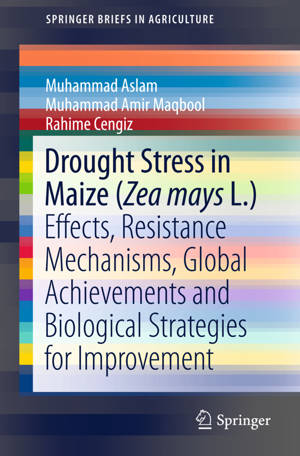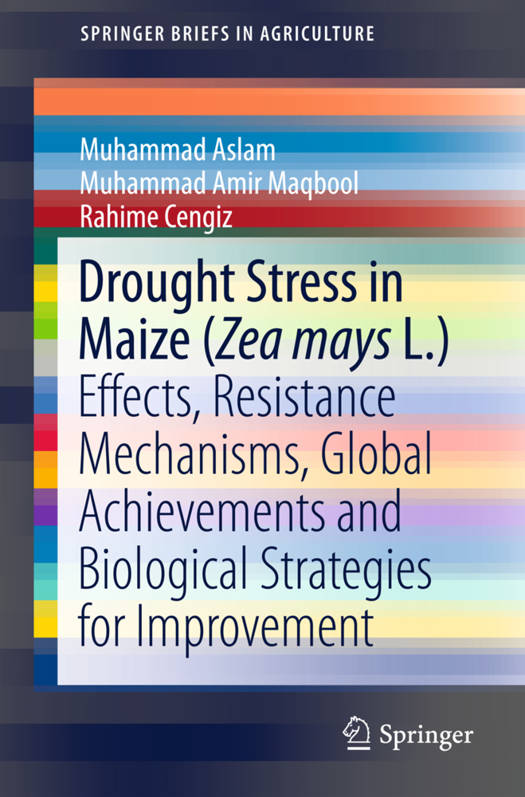
- Afhalen na 1 uur in een winkel met voorraad
- Gratis thuislevering in België vanaf € 30
- Ruim aanbod met 7 miljoen producten
- Afhalen na 1 uur in een winkel met voorraad
- Gratis thuislevering in België vanaf € 30
- Ruim aanbod met 7 miljoen producten
Zoeken
Drought Stress in Maize (Zea Mays L.)
Effects, Resistance Mechanisms, Global Achievements and Biological Strategies for Improvement
Muhammad Aslam, Muhammad Amir Maqbool, Rahime Cengiz
€ 52,95
+ 105 punten
Omschrijving
This book focuses on early germination, one of maize germplasm most important strategies for adapting to drought-induced stress. Some genotypes have the ability to adapt by either reducing water losses or by increasing water uptake. Drought tolerance is also an adaptive strategy that enables crop plants to maintain their normal physiological processes and deliver higher economical yield despite drought stress. Several processes are involved in conferring drought tolerance in maize: the accumulation of osmolytes or antioxidants, plant growth regulators, stress proteins and water channel proteins, transcription factors and signal transduction pathways. Drought is one of the most detrimental forms of abiotic stress around the world and seriously limits the productivity of agricultural crops. Maize, one of the leading cereal crops in the world, is sensitive to drought stress. Maize harvests are affected by drought stress at different growth stages in different regions. Numerous events in the life of maize crops can be affected by drought stress: germination potential, seedling growth, seedling stand establishment, overall growth and development, pollen and silk development, anthesis silking interval, pollination, and embryo, endosperm and kernel development. Though every maize genotype has the ability to avoid or withstand drought stress, there is a concrete need to improve the level of adaptability to drought stress to address the global issue of food security. The most common biological strategies for improving drought stress resistance include screening available maize germplasm for drought tolerance, conventional breeding strategies, and marker-assisted and genomic-assisted breeding and development of transgenic maize. As a comprehensive understanding of the effects of drought stress, adaptive strategies and potential breeding tools is the prerequisite for any sound breeding plan, this brief addresses these aspects.
Specificaties
Betrokkenen
- Auteur(s):
- Uitgeverij:
Inhoud
- Aantal bladzijden:
- 74
- Taal:
- Engels
- Reeks:
Eigenschappen
- Productcode (EAN):
- 9783319254401
- Verschijningsdatum:
- 28/11/2015
- Uitvoering:
- Paperback
- Formaat:
- Trade paperback (VS)
- Afmetingen:
- 156 mm x 234 mm
- Gewicht:
- 131 g

Alleen bij Standaard Boekhandel
+ 105 punten op je klantenkaart van Standaard Boekhandel
Beoordelingen
We publiceren alleen reviews die voldoen aan de voorwaarden voor reviews. Bekijk onze voorwaarden voor reviews.











